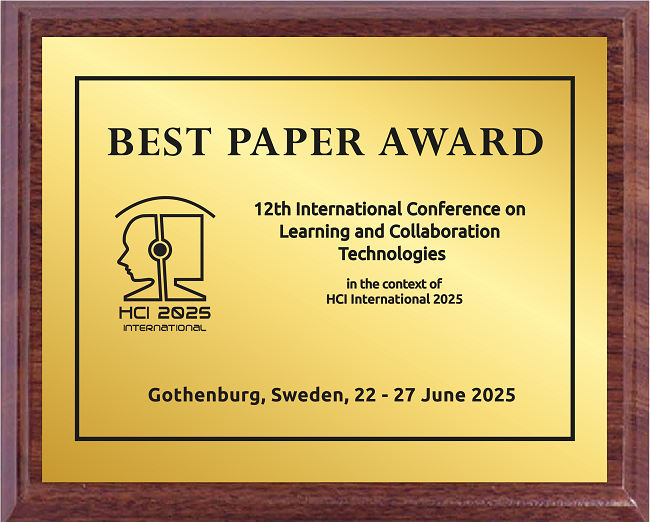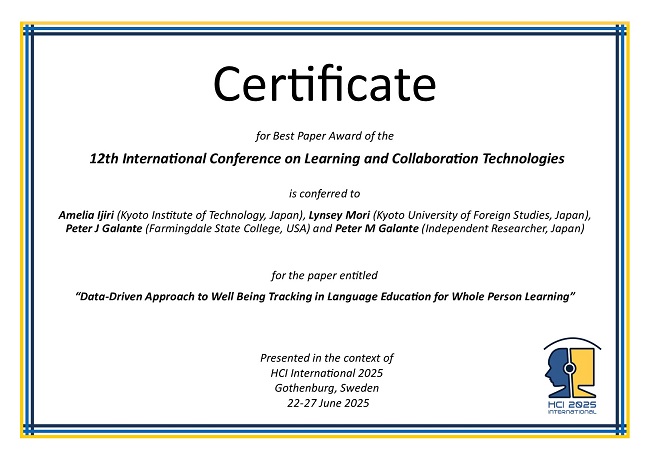The Best Paper Award of the 12th International Conference on Learning and Collaboration Technologies
has been conferred to
Amelia Ijiri, (Kyoto Institute of Technology, Japan), Lynsey Mori, (Kyoto University of Foreign Studies, Japan), Peter J. Galante, (Farmingdale Community College, USA), Peter M. Galante, (Independent Researcher, Japan)
for the paper entitled
"Data-Driven Approach to Well-Being Tracking in Language Education for Whole Person Learning"

Amelia Ijiri
(presenter)

Best Paper Award for the 12th International Conference on Learning and Collaboration Technologies , in the context of HCI International 2025, Gothenburg, Sweden, 22 - 27 June 2025

Certificate for Best Paper Award of the 12th International Conference on Learning and Collaboration Technologies presented in the context of HCI International 2025, Gothenburg, Sweden, 22 - 27 June 2025
Paper Abstract
This empirical investigation examines the pedagogical implications of Microsoft Reflect as a catalyst for Social-Emotional Learning (SEL) integration within Japanese higher education language acquisition contexts. Through a mixed-methods approach conducted at two private universities in fall 2024, we examined how real-time emotional feedback tools influence classroom dynamics and instructional adaptability, with particular focus on the relationship between professional development and educators’ capacity to leverage emotional data.
Our findings reveal that 80.3% of students demonstrated enhanced emotional awareness, transitioning from basic emotional descriptors to more nuanced expressions. The implementation garnered significant student engagement, with 74.59% expressing strong interest in expanded use within language learning, while 64.09% advocated for cross-disciplinary integration. Qualitative data highlighted successful instructor interventions, including guided breathing exercises and peer-supported rehearsal sessions, which notably improved student confidence and participation. However, challenges emerged regarding the authenticity of digital emotional expression, with some students engaging superficially in check-ins and showing discrepancies between reported emotions and observed behaviors.
The study demonstrates that successful SEL integration depends on three critical factors: instructor preparedness to interpret emotional data, strategic implementation of real-time feedback mechanisms, and creation of an environment where students feel secure expressing emotional states. These findings contribute to the discourse on technology-enhanced SEL in higher education, particularly within language learning contexts, while raising important questions about the validity of digital emotional data collection.
The full paper is available through SpringerLink, provided that you have proper access rights.


